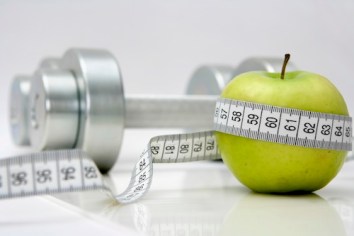 Each day we are bombarded with signs, messages and posters about new and quick ways to lose weight. Magazines sell millions of copies each season claiming to have found the long lost secret of weight loss. Deep down we know that articles offering quick fix solutions are just a ruse in order to achieve an end game. But we still buy the magazine.
Each day we are bombarded with signs, messages and posters about new and quick ways to lose weight. Magazines sell millions of copies each season claiming to have found the long lost secret of weight loss. Deep down we know that articles offering quick fix solutions are just a ruse in order to achieve an end game. But we still buy the magazine.
Weigh management is not just about trying to attain the perfect body. Obesity is an increasing public health priority in Australia. Overweight and obesity is the third attributable disease burden in Australia, behind cigarette smoking and high blood pressure. People who are obese are five times more likely to have high cholesterol levels. They are also at a significant increased risk of comorbidities such as heart disease, diabetes, reflux disease, incontinence, sleep apnoea and certain types of cancers. The risk of morbidity and mortality as a result of these comorbidities increase significantly when BMI is greater than 30kg/m2.
Many obesity-related conditions are preventable and partially reversible through weigh loss. Studies have shown that weight loss of 5-10% of a person’s total body weight can have significant health benefits. These include lowered cholesterol and blood pressure and an improved control of type 2 diabetes. Greater weight loss will have a beneficial effect on other conditions as well, such as sleep apnoea.
Principles of Weight Management
The fundamental principle of weight management is simple – weight loss is achieved by creating an energy deficit. This means reducing your energy intake (amount of calories consumed in food and drink) or increasing your energy expenditure (exercise) or a combination of the two.
Weight management programs need to be tailored to each individual. It needs to focus on realistic goals. Long-term success of weight management centres on self management. This means goal setting, planning and regular self-weighing. It is also important to follow up with a health professional so they can offer motivation and advice.
Lifestyle interventions
Weight management focuses on three lifestyle interventions; diet, exercise and education to support behavioural change. These man be managed alone or in combination with intensive interventions such as medications or professionally managed very low-energy diets.
1. Diet – dietary interventions that reduce energy intake can produce weight loss. Guidelines for overweight and obese adults recommend designing a diet that produces a 2500 kilojoule deficit per day. This means your energy intake should be LESS than your energy expenditure by 2500 kilojoules for weight loss to occur. While there is evidence for diets which focus on reducing fats or reducing carbohydrates, it is important to include a variety on nutritious foods. The diet should be tailored to suit each person’s individual preferences. The most important part of drawing up a meal plan is to include foods which are easy to buy and is something the person would like to eat.
Very low-energy diets can produce rapid weight loss and are very motivating. They provide only 1675 to 3350 kilojoules each day. They are recommended for adults with BMIs greater than 30kg/m2 and are only suitable under medical supervision. Very low energy diets can make a person tired, weak, dizzy and sensitive to the cold. People may also experience bowel changes and temporary hair loss.
Meal replacement products e.g Celebrity slim, Slimfast, Ultra Slim and Optislim. These products can be used to replace meals throughout the day. They are largely protein based products which are low in fat and carbohydrate, They provide the body with essential vitamins and minerals. They have been shown to produce an average weight loss of 6.7kg after 12 months. While these products are effective in weight loss, they are not suitable for long term treatment and management. It is important for individuals to be educated on portion control and healthy eating. Weight management is a life-long commitment.
2. Exercise – Exercise is an important if not essential component of general health and its role in weight management should never be undervalued. Overweight or obese adults should complete 300 minutes of moderate intensity or 150 minutes of vigorous activity each week. Physical activity will have little effect on weight unless it is combines with dietary changes. However, physical activity has health benefits even if no weight is lost.
3. Education and Behavioural Changes – this is probably the most important lifestyle modification; and it won’t make you hungry or tired! Education and strategies to support behavioural change increase the short term and long term effectiveness of the lifestyle interventions. This leads to greater and more permanent weight loss. The table below illustrates this point.
| InterventionDiet alone
Dietary change plus exercise Exercise alone Diet plus exercise plus education |
Weight loss at 12 months 3-5 kg 5-10 kg 0 kg 6-10 kg |
Weight loss at 5 years 0 kg 0-3 kg 0-5 kg 3-6 kg |
Weight management strategies include
- goal setting,
- self monitoring of behaviour and progress,
- stimulus control – recognising and avoiding trigger factors which prompt unplanned eating e.g watching television.
- modifying thinking patterns
- problem solving
Our compounding pharmacists offer advise and, if preferred, private consolations to help with weight management. Our pharmacists can identify and recommend treatments and programs. We also arrange regular follow-up and provide ongoing monitoring.
Contact us or call us to book a free consultation with our compounding pharmacist.




You must be logged in to post a comment.